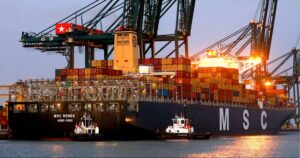Nigeria’s anticipated earnings from its natural gas sector are set to decline following a London court ruling that mandates a payment of $380 million to Vitol and Glencore due to a breach of contract.
Nigerian Liquefied Natural Gas (NLNG) operates as a joint venture among four oil companies. The Nigeria National Petroleum Company (NNPC), the state-owned oil entity, possesses a 49% stake, while Shell holds 25.6%. Total and ENI control 15% and 10.4%, respectively.
Founded in 1989, NLNG is recognized as one of the most efficiently managed companies co-owned by the Nigerian government, having distributed over $21 billion in dividends to the government since its establishment.
Legal Proceedings
According to Reuters, trading company Taleveras successfully contested NLNG in a London court over the non-delivery of 19 liquefied natural gas cargoes during 2020 and 2021.
Taleveras had anticipated receiving crude from NLNG and sold some of these cargoes to Vitol and Glencore. However, after Vitol and Glencore initiated legal action against Taleveras, the latter subsequently sued NLNG and emerged victorious. An appeal was lodged, but NLNG ultimately lost the case.
The recent ruling concludes the legal dispute, requiring NLNG to compensate Vitol with $260 million and Glencore with $120 million.
In 2022, NLNG distributed $1.1 billion in dividends to the Nigerian government, but this figure fell to $849.3 million in 2023, marking a 29.5% decrease. Following the court’s decision, NLNG’s dividends are expected to further decline, as the debt will be settled either through direct deductions from dividends or through cargo deliveries, according to energy analyst Dan Kunle.
Enhanced investment is essential
Kunle, who possesses extensive experience in both the private and public sectors, informs The Africa Report that there is a pressing need for enhanced investments in the gas sector.
“NLNG has declared force majeure three times in the past three years, resulting in a 40% decline in its exports,” he states.
“If business agreements are not honored, there will be consequences. Engaging in improper practices leads to financial losses,” he emphasizes.
Conversely, a government representative mentions to The Africa Report that the financial implications will not have an immediate impact on the Nigerian government, as NLNG is not required to make a lump-sum payment.
See more: 500 Business Champions: Our 2025 ranking of African companies
“Payments will be made incrementally, either through funds or cargoes over a period of time,” he explains.
A representative from the organization did not provide a response to inquiries.






